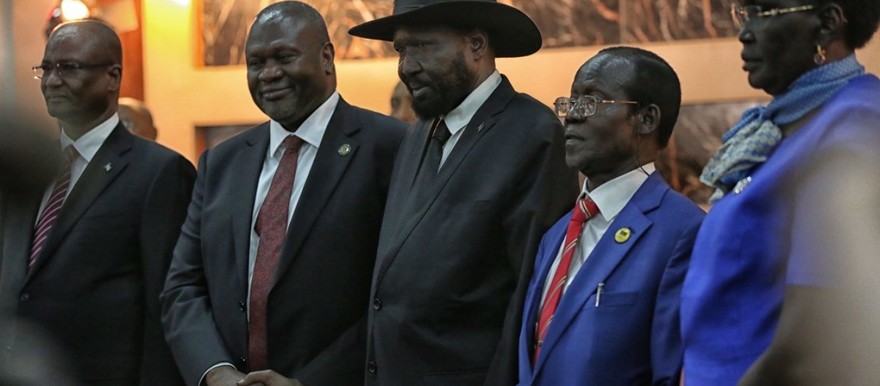Insufficient political will among the parties, trust deficit and lack of confidence among the parties, continue to undermine progress in the implementation of the peace agreement, a peace monitor said.
Peace monitors in South Sudan have been expressing concerns over the stalled implementation of the 2018 peace agreement, especially the implementation of the security arrangements.
A unity government that would prepare the country for elections was formed in February 2020. But even now, critical aspects of the peace deal such as security arrangements, transitional justice, and institutional reforms are behind schedule or completely frozen.
Speaking at a meeting in Juba last week, Maj. Gen. Charles Tai Gituai, Interim Chairperson of the Reconstituted Joint Monitoring and Evaluation Commission (RJMEC) said that missed timelines, delays and lack of prioritization of key tasks, and the inability of the parties to sufficiently coordinate, cooperate, and forge consensus, hampers the implementation of the agreement.
According to the RJMEC chairperson, other challenges facing the implementation of the revitalized peace agreement includes the lack of sufficient funding and resources that are needed.
“At this point, three years into the implementation of the R-ARCSS [Revitalized Agreement on the Resolution of the Conflict] and roughly halfway through the Transitional Period, the Interim Chair said that missed timelines, delays and lack of prioritization of key tasks, and the inability of the Parties to sufficiently coordinate, cooperate, collaborate, compromise, and to forge consensus, hampers the implementation of the R-ACRSS,” he said.
Charles said that non-completion of the unification of forces, including no agreement so far on the command structure and force ratios, absence of any redeployment of the trained component of the Necessary Unified Forces (NUF) has contributed to the worsening security situation at the subnational level, compounds public frustration with the parties, and undermines confidence in the peace process.
The peace monitor urged the reconstituted transitional parliament to “embark on its legislative and oversight functions, including expediting the enactment of pending bills.
In May, President Salva Kiir announced a new parliament including lawmakers from the opposition as part of the 2018 peace accord.
In accordance with the peace deal, the national assembly will number 550 lawmakers, up from the previous 400.
Of these 332 lawmakers were chosen by President Kiir, 128 by First Vice President Riek Machar, and 90 others by signatory parties, in line with the peace deal.




